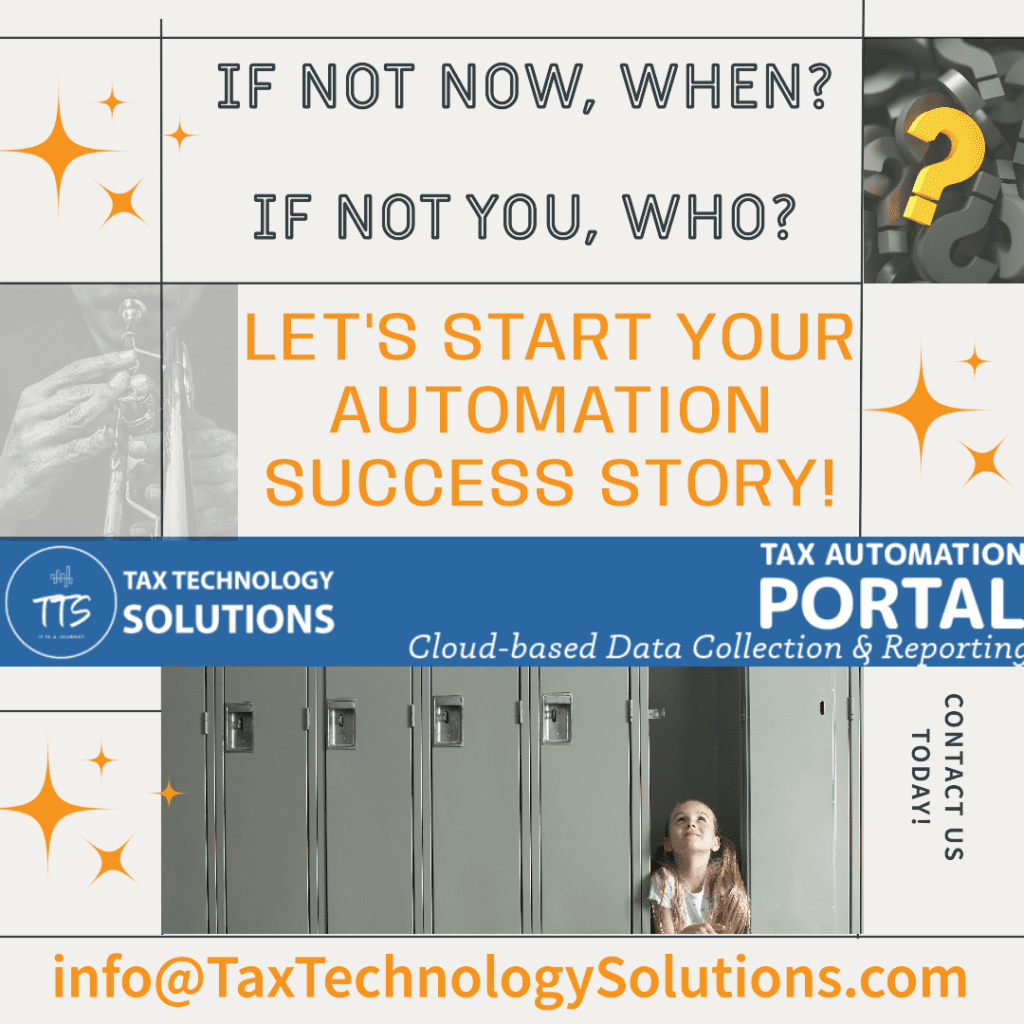
Tax Process Revolution: The Crucial Role of Technology in Modern Tax Department
In today’s rapidly evolving business landscape, companies that adopt technological innovations gain substantial advantages. Deloitte’s research indicates that businesses investing in technology achieve more than twice the revenue growth and are three times more likely to be profitable. Furthermore, the PwC Finance Benchmarking Report 2019-20 suggests that integrating process automation and fostering behavioral change can lead to a 30% to 40% efficiency improvement in finance.
Tax Leadership Hesitation and Common Concerns
Many tax leaders hesitate to adopt new technologies due to worries about cost, complexity, and the challenges of integrating new systems into existing processes. However, these concerns often overshadow the substantial benefits that technology can offer. It’s important to note that technology misuse is a valid concern and can cause significant disruptions in any department if not planned and executed flawlessly. To address all concerns, Tax Technology Solutions LLC (TTS) offers expert consultation services free of charge. We can guide your team through all options and help you construct a well-planned, realistic roadmap tailored to each client’s needs. Contact TTS today for more information at ([email protected]).
Tax Process Automation Benefits
Time and Cost Savings: By automating repetitive tasks, businesses can free up valuable time for employees to concentrate on more strategic initiatives. For example, implementing an automated ETL (Extract, Transform, Load) can reduce errors and expedites the tax return review and finalization step, significantly decreasing the time and effort required to file the consolidated return.
Improved Accuracy and Data Insights: Automation provides the foundation for advanced analytics and data processing tools to provide accurate insights and help tax leadership to make informed decisions. These tools reduce human error and offer a clear view for better tax strategy planning, Return to Provision (RTP) analysis, book-to-tax variances, and other important trends and key performance indicators (KPIs).
Scalability and Competitiveness: Technology empowers finance departments to scale their operations efficiently. For example, cloud computing services such as TTS’ Tax Automation Portal (TAP) enable tax departments to gradually extend their automation capabilities and infrastructure as needed without significant upfront costs. This scalability ensures that TTS clients stay competitive in a rapidly evolving market.
Real-World Examples
- TTS’ cloud computing platform, Tax Automation Portal (TAP), has reduced the compliance cycle for large corporations by over 30%. This kind of efficiency outcome is typical, according to recent studies by the PwC Finance Benchmarking Report.
- Audit support is another area where automation can effortlessly provide detailed responses to questions that normally take months to research. For instance, the financial details that comprise the “Other Deductions” amount on line 26 of the IRS 1120 form often originate multiple layers deep in the sub-ledgers, making the task extremely time-consuming and complex. However, a centralized tax data warehouse like TAP can transform this month-long process into an automated report generated in mere seconds.
Conclusion
Inconsistent or nonexistent investment in tax process automation is no longer sustainable. A comprehensive automation onboarding roadmap is essential for tax departments aiming for long-term success. By overcoming initial hesitations and embracing the tech-driven solutions offered by Tax Technology Solutions LLC, companies can achieve remarkable efficiency and cost savings.
Let’s embark on this journey together today!
Contact us: